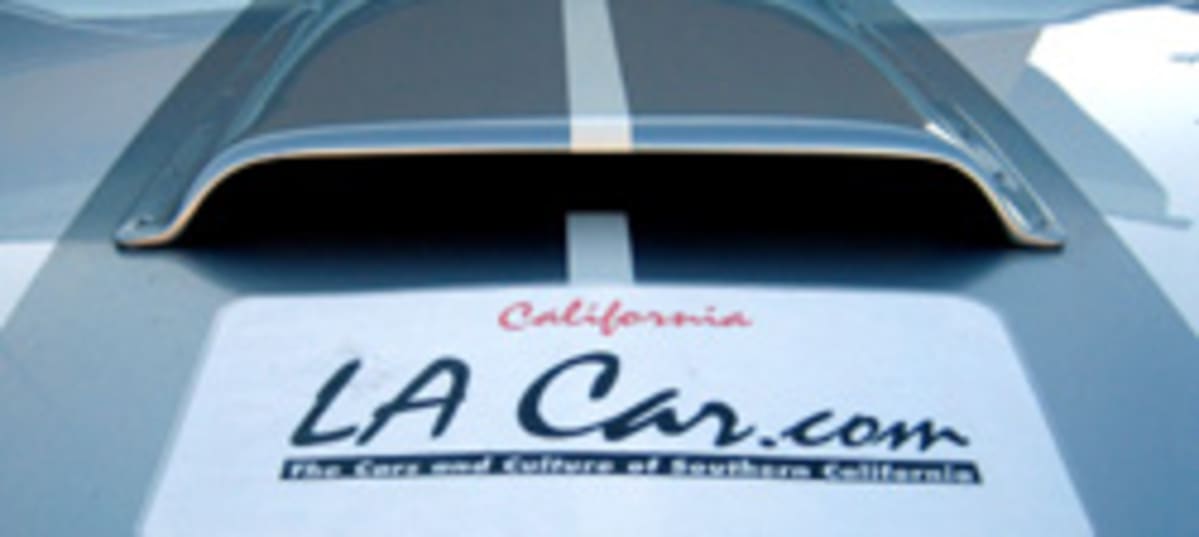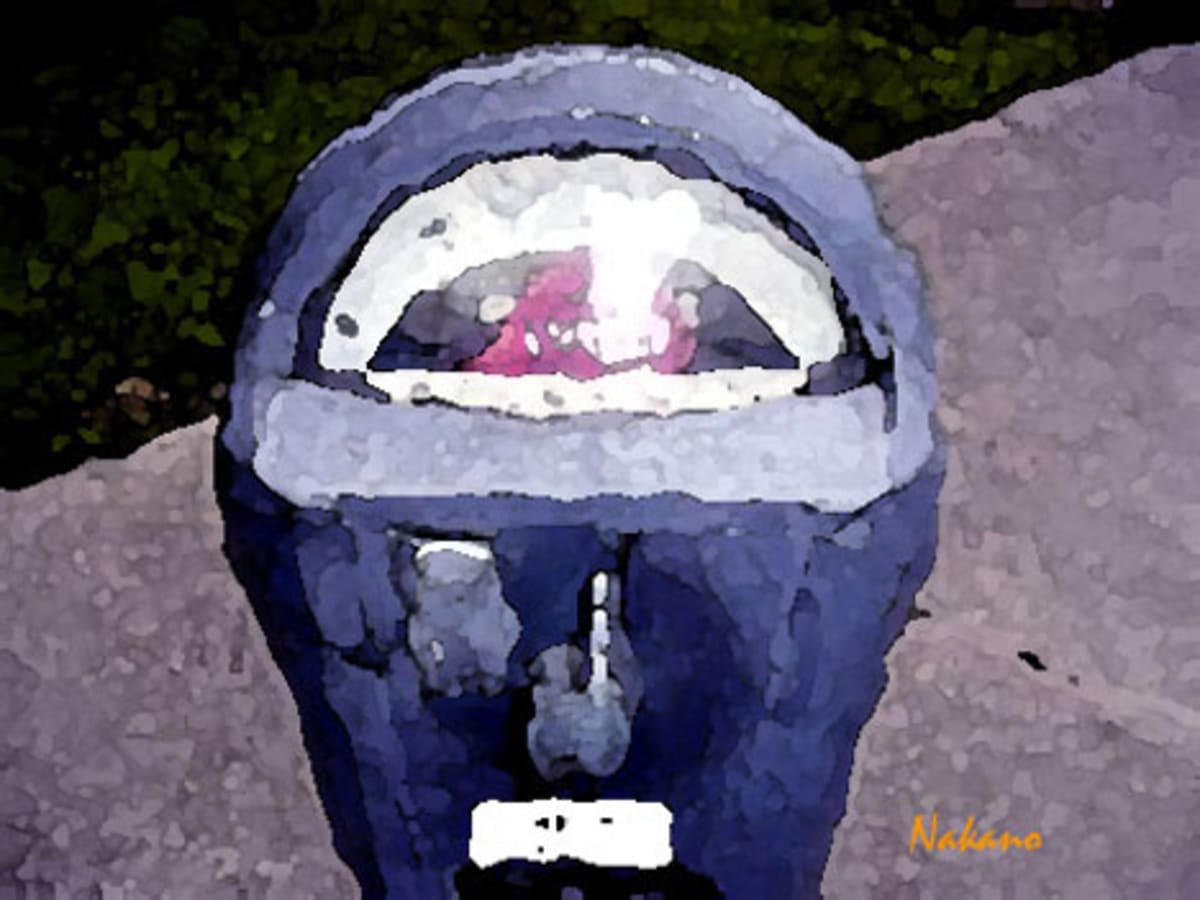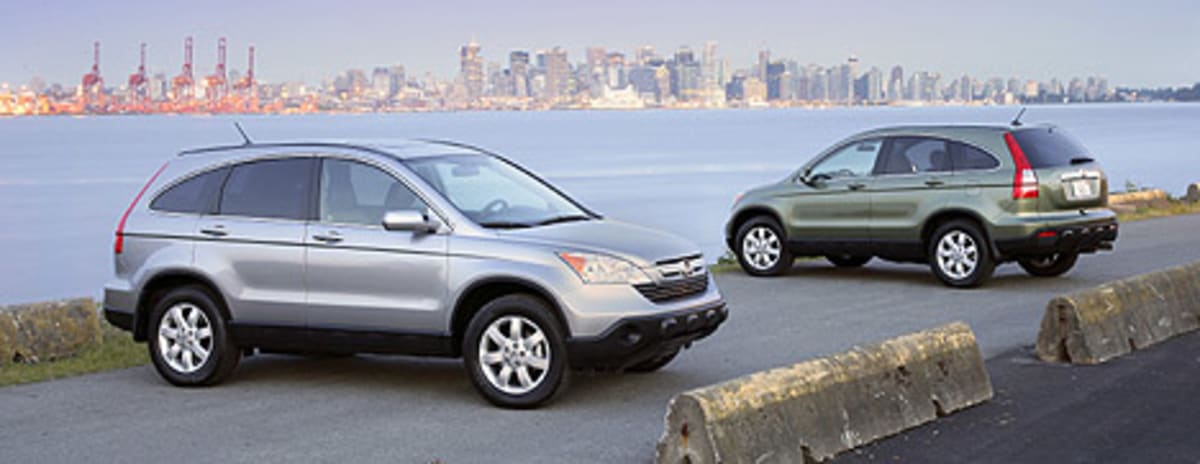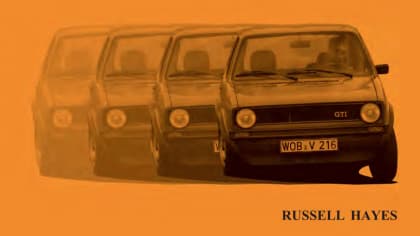BACK SEAT DRIVING - APRIL 2008
This article is from our archives and has not been updated and integrated with our "new" site yet... Even so, it's still awesome - so keep reading!
Published on Mon, Mar 31, 2008
By: The LACar Editorial Staff

NAKANO: BACK SEAT DRIVING L.A. RECONSIDERS FREE PARKING FOR HYBRIDS Free parking for those who tool around in hybrid vehicles could soon be coming to an end, according to Rick Orlov and Sue Doyle of Medianews. Just days after extending the benefit to 2011, the Los Angeles City Council voted earlier this month to reversed itself and said it now wants to study the cost of the program as the city faces dramatic budget problems. "This was a great incentive when we first did it," Councilman Bill Rosendahl said. "But hybrids don't need assistance from us. They already are getting a benefit from the savings they get by not having to buy $4-a-gallon gas. "My question is, why should we continue this when we have a budget deficit?" The move to study the program came after the council unanimously approved the ordinance Friday without discussion. Rosendahl originally sought to entirely eliminate the free parking the city, according to Medianews, but now allows for the environmentally friendly vehicles equipped with a state decal. "He agreed to delay his action to allow more study and testimony from environmental groups," said Orlov and Doyle. The city is facing a projected budget shortfall of as much as $500 million this coming year, and city officials are examining all expenses and cost-saving measures. Among his proposals, Rosendahl has called for raising parking meter rates to generate more revenue for the city. "Los Angeles Department of Transportation officials estimate the free hybrid parking program annually drains the city of about $116,560," said Orlov and Doyle. Remarks HybridCars.com blogger Randal H, "I'm slightly confused. Wouldn't it be better to make sure the SUVs get parked immediately and let the less-C02-producing hybrids run around looking for spaces?" Your Back Seat Driving comments can be sent to: Letter to the Editor
Honda's 4-cylinder CRV crossover breaks into the top 10.
NAKANO: BACK SEAT DRIVING 75 PERCENT OF NEW-CAR SHOPPERS AFFECTED BY GAS PRICES Marketing Research Shows Car Shoppers Altering Spending Behaviors IRVINE, CA - According to the latest Kelley Blue Book Marketing Research study (www.kbb.com), an increasing number of consumers say their purchasing behavior has shifted and will continue to change significantly if gas prices continue to rise. The latest 2008 results revealed that nearly 60 percent of vehicle shoppers say gas prices have changed their minds or strongly influenced their purchase decisions. Furthermore, 43 percent indicated they would seriously consider a more fuel-efficient vehicle if gas prices were to swell an additional 25 cents above current levels. Both measures are up 11 points from the previous month's Kelley Blue Book Marketing Research study. With average gas prices jumping from $2.97 to $3.27 in March, there is ample reason to see why consumer attitudes are shifting. While the vast majority of shoppers are indicating an alteration in their purchasing behaviors, only 25 percent still have no intentions in changing their behaviors, compared to 34 percent in February. The results also showed consumers considerably more interested in all the various alternative fuel technologies for fuel economy benefits and less for environmental reasons. "The cost of gasoline is continually hitting new record highs, forcing consumers to reevaluate their spending" said Jack R. Nerad, executive editorial director and executive market analyst for Kelley Blue Book and kbb.com. "This study shows just how many are willing to make better economic choices in order to save money and increase fuel efficiency. More fuel efficient models are available on the market and now consumers have that choice." The latest Kelley Blue Book Marketing Research study was conducted on Kelley Blue Book's kbb.com among 1,100 in-market new-vehicle shoppers during March 2008. Your Back Seat Driving comments can be sent to: Letter to the Editor
NAKANO: BACK SEAT DRIVING RECYCLING USED MOTOR OIL Changing your car's motor oil is an important part of maintaining engine protection and performance However, Earth 911.com states most people don't realize that what is done after the oil change is just as important. With National Car Care month and Earth Week in April, Castrol® and Earth 911 have launched a campaign to get the word out. According to Castrol, almost half of the oil changes done in the United States are performed by car owners who do it themselves. Although the majority follow proper procedures, one oil change - improperly disposed and not recycled - can contaminate one million gallons of fresh water, which is a year's supply for 50 people. According to Castol's website (www.castrol.com ecycling), consumers can learn tips on how to properly dispose of used motor oil as well as locate area recycling centers. "Many times it is a lack of information that prevents people from acting responsibly" said Derrick Mains, VP of Energy Reclamation Initiatives with Earth911.com. "Earth 911.com and Castrol hope to help inform the public about the issue of improperly disposing used motor oil and give those that change their own oil the resources to take the necessary steps toward safe recycling." Used motor oil is insoluble, slow to degrade and can contain heavy metals. Used motor oil, if not disposed of properly or recycled, can be a source of contamination in waterways and can result in pollution of drinking-water sources. "We all have a responsibility to help protect the environment" said Matt McHale, Associate Brand Manager at Castrol. "Castrol is dedicated to helping the public find quick and simple ways to recycle used motor oil and lower the possibility of improper disposal." According to Castrol, part of the teaching process is to clarify misconceptions regarding the issue. A common misconception is that oil recycling centers are difficult to find. However, there are more than 30,000 convenient recycling centers nationwide, and a majority of automotive shops and quick lube retailers will take used motor oil if it is in a proper container, like a sealable, approved oil drip pan or a motor oil bottle. Matt Hale, Director of EPA's Office of Solid Waste, says "recycling used motor oil conserves energy, reduces greenhouse gas emissions, and prevents the possible contamination of our nation's drinking water supplies." About Earth 911 Earth911.com delivers actionable local information on recycling and product stewardship that empowers consumers to act locally, live responsibly and contribute to sustainability. Both the Earth911.com site and 1-800-CleanUp (1-800-253-2687) toll-free hotline are provided at no cost to the user or taxpayer. Earth911.com centralizes information and resources into a single user-friendly, neutral and non-governmental network. Your Back Seat Driving comments can be sent to: Letter to the Editor
NAKANO: BACK SEAT DRIVING ENVIRONMENT TOPS COST AS TOP AUTO INDUSTRY CHALLENGE According to 2008 DuPont Automotive/Society of Automotive Engineers Survey DETROIT, April 10, 2008 - A new survey conducted by DuPont and the Society of Automotive Engineers (SAE) shows that environmental issues top the list of challenges facing the automotive industry, outranking cost reduction for the first time in 14 years. A total of 53 percent of the respondents said that a basket of environmental factors such as fuel economy, CAFÉ and emissions or clean air regulations are the top challenges versus 32 percent who cited cost. The survey, released today, was conducted among automotive designers and engineers in advance of the upcoming SAE World Congress in Detroit. "While cost reduction remains very important, the automotive industry's emphasis is on the environment and the demands that puts on innovation" said Chris Murphy, director - Americas, for DuPont Automotive. "In the results, environmental considerations are driving system and vehicle design and development and are a differentiator in the consumer marketplace. Automotive designers and engineers are working with suppliers like DuPont to address these issues and to design and develop cost-effective, fuel-efficient vehicles with reduced environmental impact." The annual DuPont Automotive/SAE survey of OEM and supplier designers and engineers was conducted by Consumer Insights, Inc. Key findings include: * Fifty-four percent of respondents say that fuel efficient vehicles with reduced environmental impact are important to consumers. Forty one percent say enhanced safety and 37 percent say improved comfort and convenience are important to consumers. * For the fifth consecutive year, alternatively powered vehicles are predicted to have the greatest impact on the industry. Sixty percent selected alternatively powered vehicles in 2008, while 15 percent selected safety features and 16 percent selected electrical/electronic advances. Future is Bright for Diesel * Fifty percent of respondents see diesel engine technology as a key focus to help achieve 2020 efficiency regulations (35-mpg in U.S. and sub-120g/km CO2 in Europe), while 46 percent say hybrid-electric powertrains and 42 percent say extensive use of lightweight materials. * Optimizing diesel and hybrid-electric engines will dominate engineers' work for the next 10 years, say 25 percent and 24 percent of respondents, respectively. * In 10 years, vehicles will run on bio-based diesel fuel (27 percent); petroleum-based diesel (20 percent) and E85 (20 percent). Only 18 percent predict gasoline will dominate. Materials Matters * Cost reduction is still one of the top material selection criteria, say 91 percent, but weight reduction jumps to the top of the criteria list for 82 percent, up from 66 percent last year. * Poised to grow the most over the next 10 years are advanced composites, say 62 percent of respondents. Bio-based, renewable materials will grow the most, say 26 percent; the same number who predicts aluminum will grow the most. Your Back Seat Driving comments can be sent to: Letter to the Editor
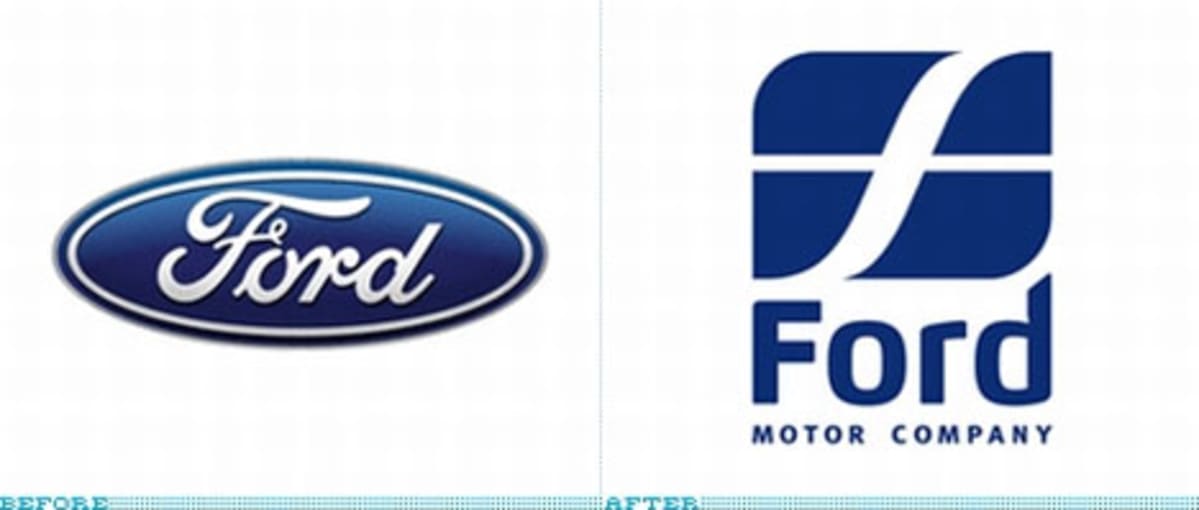
Ford's new logo
NAKANO: BACK SEAT DRIVING A GOOD DAY FOR FOOLS The 13 Best Automotive April Fools Pranks for 2008 The economy may have seen better days and we may be stuck in Iraq for longer than we care to, but America's sense of humor is in fine form. 2008 turned out to be a banner year for April fools, and the car community demonstrated more than its share of automotive foolery. In addition to the offerings by LA Car's own BT Justice, the world of automotive journalism was replete with choice samplings of 04:01 fare. The zingers included:
- Ford's New Logo
- Oldsmobile Returns!
- BMW's Dog Zapper
- Toyota Confirms Scion Pickup Based on Tundra
- Kia Introduces the KEE-Wii
- Hellbent for Leather
- RENNTECH Introduces Twin-Engined SMART 7.22
- 2008 Corvette Z06: Ugly, Tiny, Slow
- Camaro Monza Caught!
- Jaguar XF-C Coupe Concept Headed for Beijing Show
- Dorna Cancels MotoGP at Indianapolis Due to Orgies (and of course)
- It's A Total Crock After All plus
- Auto Industry Agrees to Unprecedented Standardization of Vehicle Names
So there you have it: 2008's terrible thirteen. I look forward to 2009's crop of mischief. Your Back Seat Driving comments can be sent to: Letter to the Editor
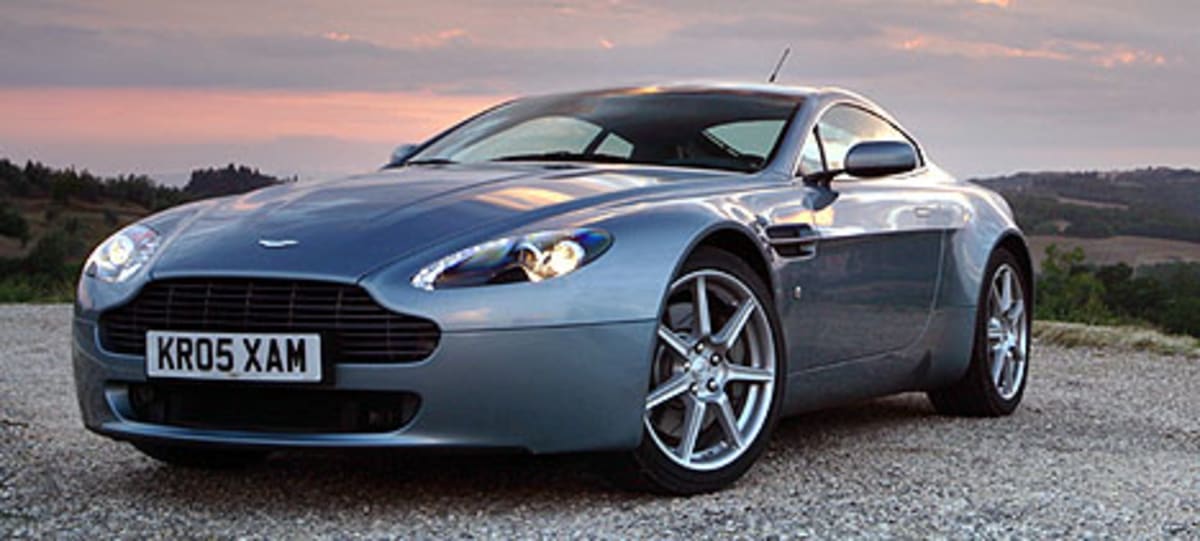
Aston Martin JB
BT JUSTICE: BACK SEAT DRIVING THE NAME GAME Auto Industry Agrees To Unprecedented Standardization of Vehicle Names April 1, 2008 Shopping for a car or truck is about to become a lot less confusing. In a move unprecedented in automotive history, all of the world's major auto manufactures today announced an agreement on a global, alphanumeric naming convention. The announcement was made simultaneously in Tokyo, Seoul, Shanghai, Munich, Paris and Detroit through a global video news conference. "Just look at how vehicles are named" said Wendelin Wiedeking, CEO of Porsche. "There's xA, xB and xD, X3, X5, EXT, EX35 and M45. Worst of all are the dreaded three-letter combos, such as HHR, RSX, DBS and SLR. It's nothing but meaningless alphabet soup." Building on Wiedeking's comments, Robert A. Lutz, General Motors' vice chairman of Global Product Development, said, "Vehicle names is one of the most complicated, nonsensical parts of the car business." "Some days I've mixed up the names of my own products, like CTS, DTS and STS" said Lutz. "I honestly don't know how a consumer can be expected to tell an MKX from an MDX from a hole in the ground." The naming convention was hammered out over the last year in secret, high-level meetings. "Some elements were no-brainers" said Takeo Fukui, president of Honda. "For example, we quickly reached consensus that there will be no restrictions on using traditional vehicle names, like Accord and Civic, but it took months for everyone to agree to use a maximum of two letters. That means Acura will have to change the names of three of the five models we sell in the U.S." The most difficult and time-consuming part of the multi-company negotiation was allocating letters to each manufacturer in order to prevent confusion among consumers. Volvo fought hard to keep the letter "S" which it has long used as a prefix for its sedan names, such as S60 and S80, but Audi also wanted to continue using "S" for its performance models, such as S6 and S8. Similarly, Ford wanted to keep "F" as the prefix for its full-size pickup trucks, such as the F-150, but Ferrari also uses "F" in its vehicle names. In the end, Ferrari agreed to pay Ford $430 million for exclusive use of "F" as the first letter in a vehicle name. "We really wanted to keep 'F,'" said Alan R. Mulally, president and CEO of Ford. "It means a lot to us, but we couldn't say no to the cash. We'd like to sell the 'E' we use for our E-Series vans, but so far we haven't found a taker. We're still talking with some of the Chinese manufacturers." Senior executives of every major automaker took part in the global news conference, and many told firsthand stories of customer confusion - and even their own confusion over vehicle names. "I met a woman in the service department of a Lexus dealer in Silicon Valley and asked which model she drove" said Katsuaki Watanabe, president of Toyota. "She told me it was a 350. I asked if it was an ES 350, GS 350 or an IS 350. She looked at me like I was nuts. She said, 'It's a Lexus 350. It doesn't have any letters.' "That got me thinking about all of the other vehicle names out there that include 350" said Watanabe. "Nissan has the 350Z, there's the Hyundai XG350, Ford's got an F-350. No wonder people are confused." Li Jianxin, chairman of Chanfeng Motors, told of overhearing two gentlemen at a party discuss how much each liked his G5. "I mentioned I also owned a G5" said Li. "But it turns out one of them was talking about a Canon camera and the other about a Pontiac. I'm sorry I butted in because I was referring to my Gulfstream jet. It was somewhat embarrassing." Highlights of the naming convention include: · BMW will continue to use "Series" while Ford, Volvo and Mazda will stop using it · Mercedes will have exclusive use of "Class" but it will be able to use only two logically related letters for vehicle names · Aston Martin is changing the two-letter designation of its cars from DB to JB, for "James Bond" · Because of past overuse, X can no longer be used unless it's part of a true name (e.g., Taurus X) · Only automakers that export products today will be able to use single or double letters. New manufacturers will be able to use names only "Many auto executives felt luxury buyers preferred cryptic names" said Carlos Ghosn, CEO of Renault and Nissan. "But research tells us most people, no matter their income level, prefer that vehicles have names, rather than random letters and numbers. "We expect the GANC (Global Automotive Nomenclature Convention) will give us a new generation of car names of the stature of Mustang, Eldorado, Alpine and Skyline." Note: Mumbai was supposed to be among the cities taking part in the announcement because of Tata Motors' recent purchase of Jaguar Land Rover, which put the company, and India, into the ranks of world-class automotive production. Unspecified technical problems prevented a communications link. Your Back Seat Driving comments can be sent to: Letter to the Editor

GM's new zero emissions vehicle
BT JUSTICE: BACK SEAT DRIVING IT'S A TOTAL CROCK AFTER ALL GM to Introduce Electric "Cooker" at Detroit Auto Show April 1, 2008 General Motors Corp Vice Chairman Bob Lutz has been under fire from Internet bloggers since late January, when he was quoted by D magazine for saying "global warming is a total crock of sh*t." In February, he defended his remarks in GM FastLane Blog. "An offhand comment I made recently about the concept of global warming seems to have a lot of people heated, and it's spreading through the Internet like ragweed. But I think that the people making a big deal out of it are missing the real point," said Lutz. The real point, it turns out, is that General Motors will be introducing the first zero emissions hybrid electric-internal combustion engine (ICE) vehicle at the upcoming Detroit Auto Show, code-named the Crock. The vehicle is similar in concept to the GM's electric Volt concept car, but uses a zero emissions bio-fuel engine as the back-up motor to the main electric motor. "The back-up motor runs on vegetable oil, which leaves a slight aroma not unlike French fries," says World Wrestling Entertainment star Dwayne "The Rock" Johnson, who GM has commissioned to become the spokesperson for the Crock. GM's success with 50 Cent as a spokesperson for its recently-introduced G8 sedan was instrumental in its newest partnership with the WWE. "During its development phase, GM engineers referred to the electric vehicle as the crock pot because of its use of vegetable oil and plug-in technology," said Johnson. "Bob's comments about a 'total crock' was dreamed up by GM's marketing department." Johnson has confirmed that the catch phrase for the new concept car will be a variation of his own popular saying ("can you smell what The Rock is cooking?") - i.e., "Can you smell what the Crock is cooking?" Your Back Seat Driving comments can be sent to: Letter to the Editor
A
JOURNAL OF LOS ANGELES & ITS CAR CULTURE That
was LA Car's subtitle when it started back in 1997. It's original website
address was about five times the size of lacar.com. Since then, La Car
became LA Car. Its subtitle became
Reporting From Car Culture Ground Zero, then From The Heart of Car
Culture, to today's The Cars and Culture of Southern California. At
all times, however, we aimed to chronicle the Southland's automotive spirit - much like
one's own
journal or diary.
LA Car has always been a great source
to come back to from week-to-week, to see what articles and reviews have been
added to our rather staggering database. With Back Seat Driving, a.k.a.
BSD (note the similarity to two well-worn abbreviations, BS and BFD) and Live
Wires - Hot & Tender News From the Car Culture (co-located with Back Seat
Driving, and updated at least daily), we give you some reasons to
come back more often (all opinions, by the way, are those of the respective
author).
So, go
ahead and bookmark www.lacar.com. We'll be
sure to always provide a link to Live Wires and the latest Back Seat
Driving blog entry. In the meantime, welcome to the journal and journey from
the heart of the car culture. - Roy Nakano For
past Blog entries, click the following:
March 2008
February 2008
January 2008
December 2007
November 2007
October 2007
September 2007
August 2007
July 2007
June 2007
May 2007
April 2007
March 2007
February 2007
January 2007
December 2006
November 2006
October 2006
September 2006
August 2006
July 2006
June 2006
May 2006
April 2006
March 2006
February 2006
January 2006
December 2005
November 2005
October 2005
September 2005
August 2005
July 2005
June 2005
May 2005
April 2005
March 2005
February 2005
January 2005
December 2004
November 2004
October 2004
September 2004
August 2004
July 2004
June 2004
May 2004
April 2004
